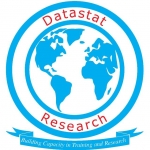|
|
Training Course on Emergency Needs Assessment
USD 1,000 |
Venue: Datastat Research Training Institute, Nairobi, Kenya
This training introduces basic concepts and approaches related to disaster situation and emergency needs assessments and presents post-disaster assistance needs typically associated with various types of natural hazards. In addition, the training presents a disaster assessment reporting format that National Societies can use for reporting purposes. This training is appropriate for staff and personnel with little experience in conducting disaster needs assessments or completing international appeals forms following a disaster, but who have responsibility for these functions.
Duration: 5 days.
Who Should Attend?
Disaster preparedness, mitigation, response and recovery professionals, emergency planners, NGO staff, staff in emergency response agencies
Course Objectives
By the end of the training the learner should be in a position to:
- Understand the purpose of disaster needs assessment
- Identify the link between disaster needs assessments and emergency response decision making
- Familiar basic methods and tools for collecting assessment information and ways to minimize assessment bias
- Understand the typical adverse effects and post-disaster needs commonly arising from specific hazard types
- Understand disaster needs assessment reporting format
- Identify priorities in emergency response and needs assessment
Course Content
Module I: Overview of Disaster Needs Assessment
- Role of national societies in disaster response
- Purpose of disaster needs assessments
- Emergency response priorities
- Types of Damage and needs assessment
Module II: Emergency Response Based on Emergency Assessments
- Assessing the situation
- Choosing objectives and identifying alternatives
- Implementing response plans
Module III: Disaster Needs Assessment Reporting
- Forecasting and early warning
- Disaster early notification
- Disaster needs assessment
- Monitoring
Module IV: Assessment Sources and Methods
- On-site visual inspection
- Interviews
- sampling
- Relying on secondary sources
Module V: Minimising Assessment Bias
- Triangulation
- Team and joint assessments
Module VI: Assessment Tools
- Checklists
- Gap identification charts questionnaires
Module VII: Finding Recurrent Patterns In Emergencies
- Earthquakes
- Mud and debris flows
- Landslides
- Volcanic eruptions
- Tsunamis
- Droughts
- Floods
Methodology
The instructor led trainings are delivered using a blended learning approach and comprises of presentations, guided sessions of practical exercise, web-based tutorials and group work. Our facilitators are seasoned industry experts with years of experience, working as professional and trainers in these fields.
Key Notes
i. The participant must be conversant with English.
ii. Upon completion of training the participant will be issued with an Authorized Training Certificate
iii. Course duration is flexible and the contents can be modified to fit any number of days.
iv. The course fee includes facilitation training materials, 2 coffee breaks, buffet lunch and a Certificate upon successful completion of Training.
v. One-year post-training support Consultation and Coaching provided after the course.
vi. Payment should be done at least a week before commence of the training, to DATASTAT CONSULTANCY LTD account, as indicated in the invoice so as to enable us prepare better for you.
| Datastat Research Training Institute, Nairobi, Kenya | Nov 25 - 29 Nov, 2024 |
| USD 1,000.00 | |
Sammy Gathuru 0724527104
Related Courses
 Training Course on Grant Management using Infor Sun Accounting System
Training Course on Grant Management using Infor Sun Accounting System
12 days, 06 - 17 Jan, 2025
Datastat Research Center
 Training Course on Monitoring and Evaluation for Governance (Decentralization and Local Governance)
Training Course on Monitoring and Evaluation for Governance (Decentralization and Local Governance)
5 days, 06 - 10 Jan, 2025
Datastat Research Center
 Training Course on Data Visualization using Tableau
Training Course on Data Visualization using Tableau
5 days, 06 - 10 Jan, 2025
Datastat Research Center




